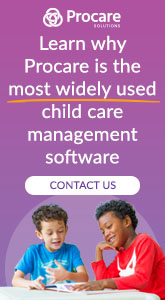October 1, 2024
Infants and Toddlers as Scientists
The most interesting thing about babies is that they are so enormously interested; the most wonderful thing about them is their infinite capacity for wonder.
– Alison Gopnik, The Scientist in the Crib: What Early Learning Tells Us About the Mind
This ExchangeEveryDay Classic, originally published June 13, 2002, quotes Judith Leipzig in an intriguing chapter to The Wonder of It: Exploring How the World Works, called “Supporting the Development of a Scientific Mind in Infants and Toddlers.” While our phones may have surpassed TV commercials as interrupters, the rest remains relevant today:
There is a special kind of focus that scientists bring to bear upon the subject of their investigations. This is an intense beam of interest, an absorption which cannot be deterred by the enticements of less important activities. We have an image of the serious scientist working in her lab into the wee hours of the morning, absorbed in her work in a way that makes her disregard all else.
This ability to concentrate on a matter of interest is, in part, something that many babies are born with. Babies are paradoxical — on the one hand, much of their learning is global and undifferentiated, but on the other hand, it is an incredibly minute examination of experience. How many adults would not only notice, but also explore, the variations of feeling when brushing up against blanket edge and blanket middle? It is the rare adult who would display the impressive ability to become involved in a question that the toddler shows when he pushes a chair back and forth from one side of the room to the other, while he learns about space and movement, and himself and more.
Adults can either assist children in developing their concentration further, or we can teach them to derail their trains of thought in mid-journey in much the same way that television commercials interrupt our absorbed experience of a story and program our minds to expect these breaks from cognitive engagement.
In this area, one of the important things that teachers can think about is learning the skill of watching and waiting. It’s important for adults to recognize when not to interrupt as a baby crawls in and out of a box on the floor repeatedly, or a toddler concentrates for a full five minutes on sponging off an already clean table. Children need time to process their experience, so if they continue to look absorbed, we can know that they are still working on learning and integrating information. They also need the time to gain a sense of completion in the task. When possible, a teacher should think about whether that baby really needs her diaper changed this very minute, if it’s absolutely necessary to go to the store right now, or if the adult can honor the child’s absorption for a little while longer.
Share with the hashtag #ExchangeEveryDay
Print Friendly
Related
By Ann Pelo and Margie Carter













